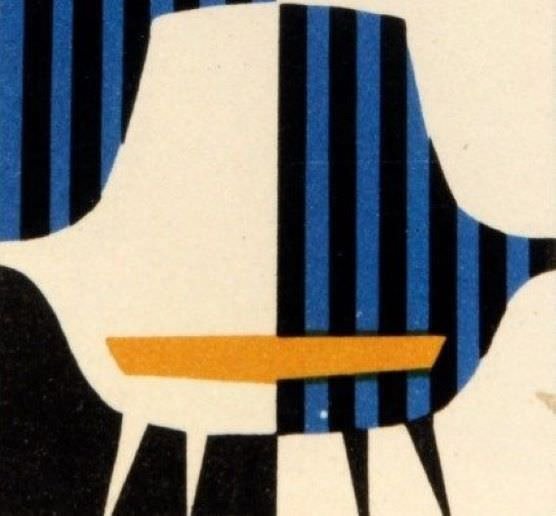Antonín Kybal was one of the most important personalities of Czech design of the 20th century, Czech textile artist and teacher, founder of the Czech school of tapestry.
He was born in Nové Město nad Metují (Bohemia), in the town where an industrial weaving factory belonging to his father was located at one time. Kybal cultivated a relationship with textiles and the weaving mill since his childhood and remained faithful to it throughout his life. For a while, the family even lived in the weaving mill, and family acquaintances and Kybal’s friends were mostly connected to the weaving mill or the industry in some way.
He began his career by studying at the Academy of Arts, Architecture and Design in Prague (UMPRUM – Vysoká škola uměleckoprůmyslová v Praze) in the sculpture studio of prof. Josef Mařatka. Even then, however, he was attracted by colours, which is why he eventually moved to professor Arnošt Hofbauer, where he studied painting and figure drawing. He also studied pedagogy at Charles University. He started teaching right after graduation and taught at gymnasiums, but it did not fulfill his aspirations fully, so he soon gave up the teaching profession. Instead, he began to travel, painting the surrounding countryside on his travels. It was thanks to this hobby that he got to know folk art and crafts, including textiles, which appealed to him and brought him back to the memories of his childhood and the weaving mill. He left school and started his career as an artist.
At school, he met his future wife and closest colleague, Ludmila Kybalová. Together with his wife he owned an art studio in which he created carpets, tapestries, curtains, printed patterns and other designs and realizations.
Kybal became a leading figure and a pioneer of modern Czech textile art. After the Second World War, he founded the “Kybal Textile School” at the University of Applied Arts in Prague, whose activities were focused on tapestries and carpets.
He became an academic professor and trained two generations of textile artists.
He was an important textile artist not only in terms of art, but also in terms of technology, which came from a family tradition (his father owned a textile factory).
Kybal’s workshop was one of the few that produced textiles adapted to production techniques and at the same time conformed to the modernist style. His textiles, with patterns composed of linear figures, resonated with the functionalist trends of the time.
Antonín Kybal was one of the most prominent personalities in the design of home textiles and an innovator of textile creation in the 20th century. With his work, he raised textile production into a completely unique artistic means of expression, corresponding to the language of modernism. Kybal’s main contribution was the ability to enforce high aesthetic, craftsmanship and material requirements in industrial production and to blend them with current aesthetic trends.
References:
Antonín Kybal: Cesty designu a textilní tvorby Prager Kunstgewerbemuseums, 2016, ISBN: 9788074372230
